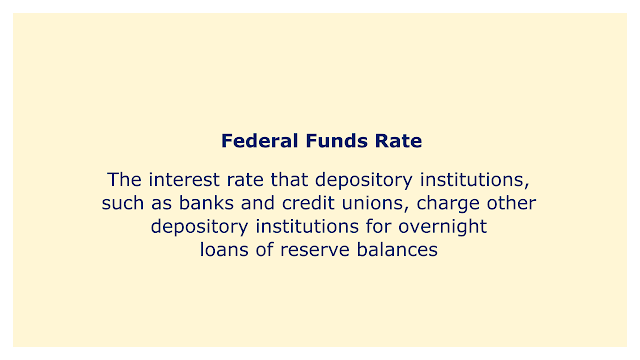 |
| Image: Moneybestpal.com |
The interest rate that depository institutions, such as banks and credit unions, charge other depository institutions for overnight loans of reserve balances is known as the federal funds rate. The Federal Open Market Committee (FOMC), which is a part of the Federal Reserve System, decides the rate.
One important tool the Federal Reserve uses to carry out monetary policy is the federal funds rate. The Fed may cut the federal funds rate during times of economic weakness in order to encourage borrowing and spending, which will in turn boost economic activity. In contrast, the Fed may increase the federal funds rate to discourage borrowing and spending when the economy is expanding too quickly and inflation is a worry. This can serve to moderate economic growth and keep inflation under control.
Federal funds rate changes may have repercussions across the whole economy. For instance, a decline in the federal funds rate may result in lower interest rates on credit cards and loans, which will encourage people to spend money and invest in businesses. On the other hand, a rise in the federal funds rate may result in higher credit card and loan interest rates, which might restrict consumer spending and company investment.
Financial markets also pay close attention to the federal funds rate because it can predict the direction of future interest rate adjustments and have an impact on the value of stocks, bonds, and other financial assets. As a result, the federal funds rate is a crucial sign of the economy's general health and the success of the monetary policy.
